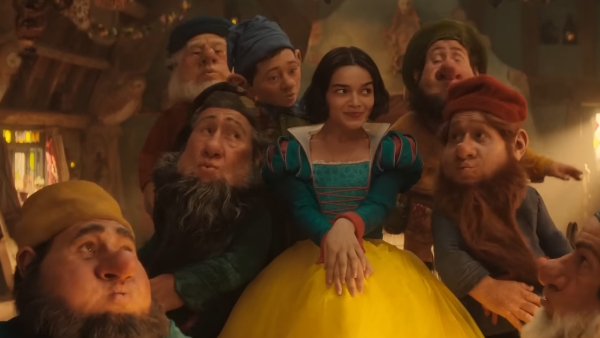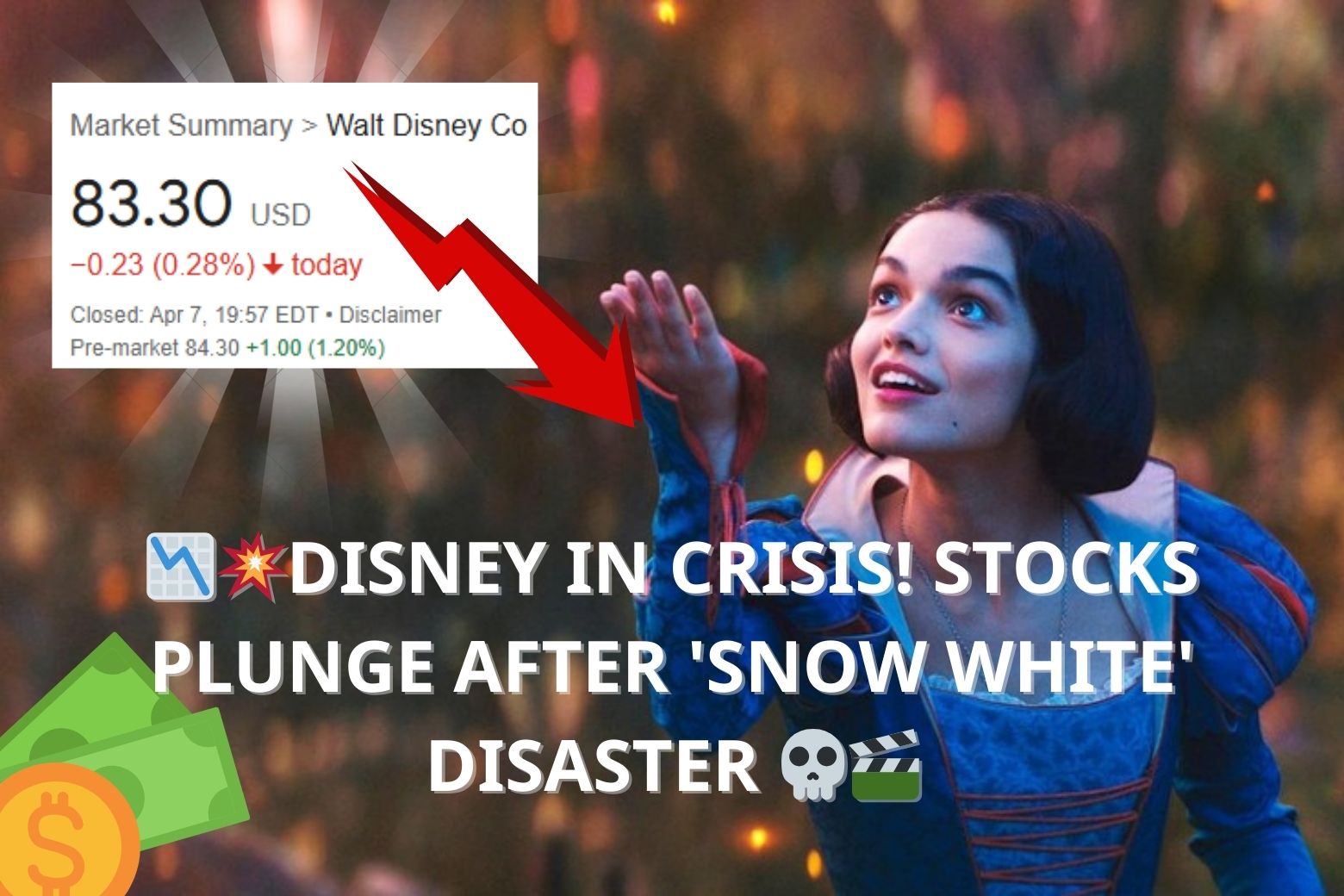Disney’s live-action remake of Snow White, released on March 21, 2025, was anticipated to be a cornerstone in the studio’s storied legacy of reimagining animated classics. With a reported production budget exceeding $270 million, the film was poised to captivate audiences with its modern take on the 1937 fairy tale. However, the film has become a cautionary tale of Hollywood’s challenges in navigating cultural sensitivities, social media dynamics, and audience expectations. Grossing a mere $87 million globally in its opening weekend and projected to incur a $115 million loss, Snow White has been labeled a box office disaster. At the center of the storm is its 23-year-old star, Rachel Zegler, who has faced intense scrutiny for her outspoken views and social media activity. Yet, a growing chorus of media voices and industry figures has rallied to her defense, arguing that Disney’s scapegoating of Zegler is both unfair and emblematic of deeper systemic issues.
A Troubled Production from the Start
The Snow White remake faced controversy long before its theatrical debut. When Zegler, a Latina actress of Colombian and Polish descent, was cast as the titular princess in 2021, critics questioned her suitability for a character traditionally described as having “skin as white as snow.” Zegler’s comments in 2022 further fueled the backlash. In interviews at Disney’s D23 Expo, she described the original 1937 film as “dated” and criticized its romantic plot, noting that her Snow White would focus on leadership rather than “dreaming about true love.” She also called Prince Charming a “stalker” and suggested his scenes might be cut, prompting accusations of disrespect toward Disney’s legacy.

The film’s creative choices also drew ire. The decision to replace the Seven Dwarfs with CGI “magical creatures” sparked debate, particularly after actor Peter Dinklage criticized the original portrayals as stereotypical. Disney’s attempt to address these concerns by consulting with the dwarfism community was met with mixed reactions, with some actors with dwarfism arguing the move sidelined their opportunities. The replacement of Prince Charming with a new character, Jonathan, a Robin Hood-esque bandit played by Andrew Burnap, further alienated traditionalists who viewed the changes as a “woke” overhaul of a beloved classic.
Zegler’s Social Media Firestorm
The most significant controversy emerged from Zegler’s social media activity. On August 12, 2024, three days after presenting the Snow White trailer at D23, Zegler posted on X, thanking fans for the trailer’s 120 million views in 24 hours. She followed with a separate post: “and always remember, free Palestine.” The comment, which garnered 8.8 million views, sparked immediate backlash. Disney executives, according to Variety, were “shocked” that Zegler would tie a political statement to the promotion of a $270 million tentpole. Producer Marc Platt reportedly flew to New York to discuss the post with her, but Zegler refused to delete it.
The post reportedly led to a spike in death threats against Zegler’s co-star, Gal Gadot, who plays the Evil Queen and is a former Israeli Defense Forces instructor. Disney was forced to increase security for Gadot, a mother of four. Tensions between the two actresses were rumored, though both maintained professionalism during promotional events. Zegler’s subsequent posts after the 2024 U.S. presidential election, including “F*** Donald Trump” and “May Trump supporters … never know peace,” further inflamed critics. Disney responded by assigning a “social media guru” to vet Zegler’s posts before the film’s release, a move she reportedly agreed to after negotiations.
A Box Office Bomb and a Scapegoat

Snow White’s dismal performance—$43 million domestically in its opening weekend against a budget ballooned by costly reshoots—prompted intense scrutiny. Critics gave the film a 41% approval rating on Rotten Tomatoes, with The Independent’s Clarisse Loughrey calling it “lazy” and “visually repellent.” Audience reception was mixed, with a 74% Rotten Tomatoes audience score but a 1.6/10 on IMDb, reflecting a coordinated “review-bombing” campaign. Disney insiders, as reported by World of Reel, quickly pointed to Zegler as the primary reason for the flop, citing her social media posts and critical comments about the original film as alienating half the potential audience.
Jonah Platt, son of producer Marc Platt, publicly criticized Zegler in a now-deleted Instagram post, calling her “immature” and “narcissistic” for “hijacking” the film’s promotion with her political views. He argued her actions harmed the livelihoods of the film’s crew and blue-collar workers. Zegler’s West Side Story co-star Ariana DeBose appeared to echo this sentiment, reposting Jonah’s comment with Beyoncé’s “Cozy” as the soundtrack, though she later clarified she was not targeting Zegler.
Media and Industry Pushback
Despite the backlash, a significant portion of the media and entertainment industry has come to Zegler’s defense, framing her as a scapegoat for Disney’s missteps. Vanity Fair argued that Disney’s attempt to blame Zegler has backfired, turning her into an “icon” for her integrity. Film critic David Ehrlich praised her on X, stating, “Rachel Zegler RULES and so obviously has a lifetime of incredible roles ahead of her.” Actress Melissa Barrera, fired from Scream 7 for her own pro-Palestine posts, called Zegler “cool as hell” on Instagram Stories. Journalist Mark Harris described Variety’s reporting as a “hit job,” accusing Disney of orchestrating a campaign to shift blame. Over 50 journalists signed an open letter condemning the article, calling it “astonishingly graceless” and dishonest.
Defenders argue that Zegler’s casting and the film’s feminist reimagining were lightning rods for a broader cultural backlash against “woke” Hollywood. The racist vitriol directed at Zegler since 2021, coupled with coordinated online campaigns, suggests her vilification predates her social media posts. Supporters also point to Disney’s history of deflecting blame, as seen with The Marvels director Nia DaCosta, who faced similar leaks about her conduct after that film’s underperformance. Zegler’s youth and outspokenness, they argue, make her an easy target for a studio grappling with a $200 billion market value decline over recent years.
Disney’s Broader Challenges
The Snow White debacle reflects deeper issues within Disney and the entertainment industry. The studio’s pivot away from “woke” projects, as reported by Daily Mail, includes shelving a Tangled remake and reevaluating its live-action strategy. The backlash against Snow White’s progressive elements—its feminist narrative, diverse casting, and altered characters—highlights the difficulty of updating classics for modern audiences without alienating traditional fans. Disney’s scaled-back promotional efforts, including a low-key European premiere in Segovia, Spain, with only Zegler and director Marc Webb in attendance, suggest a lack of confidence in the film’s reception.
Zegler’s supporters argue that her political posts, while polarizing, reflect a generational shift in how actors engage with social issues. Unlike Gadot, who limited her comments to supporting hostages taken during the October 7, 2023, Hamas attack, Zegler’s unfiltered approach resonates with younger audiences but risks alienating conservative viewers. The studio’s attempt to control her social media underscores the tension between artistic freedom and corporate interests, a challenge Hollywood faces as stars increasingly use platforms like X to express their views.
Zegler’s Next Steps
Zegler remains undeterred, with upcoming roles as Eva Perón in a West End revival of Evita and a potential part in a Y: The Last Man adaptation. However, her casting as Evita has already sparked controversy, with reports that Madonna, who played the role in the 1996 film, is displeased. Zegler’s defenders, including director Marc Webb, emphasize her talent and deep connection to Disney’s legacy, noting her lifelong fandom and vocal prowess. “The reality is, I was given a chance because I could sing,” Zegler told Allure, underscoring her qualifications amid the noise.
A Divided Legacy
Disney’s Snow White was intended to bridge the gap between nostalgia and modernity but instead exposed the fault lines of a polarized cultural landscape. Rachel Zegler, whether vilified or celebrated, has become a symbol of this divide. While critics blame her for the film’s failure, her defenders see a young actress unfairly targeted for her authenticity and principles. As Disney reassesses its approach, the industry watches closely, aware that the fallout from Snow White may shape how studios navigate the delicate balance of art, commerce, and public discourse in an era of unrelenting scrutiny.
